Africa kickstarts the circular economy
For the first time since its origin in Finland in 2017, the World Circular Economy Forum turned to the south. Hosted in Kigali, Rwanda – the green heart of the continent – the Forum gathered 4,167 global participants to chew over the main target: how Africa can contribute to a global circular economy.
Africa holds some of the world’s largest diversity – and biodiversity. It is a rapidly urbanising continent where most people retain roots in the countryside and in agriculture, with the logic of the circular economy – which works with and learns from nature – intuitive to most people across the continent. More than that, Africa is also the continent with the youngest population, which makes it well-placed to develop tomorrow’s technology-enabled circular solutions. As the continent facing some of the most severe threats to its natural richness, it also holds some of the most important keys for solving the crisis and driving resilient growth across the continent. Nowhere are the future and the past more intertwined than in Africa.
At WCEF2021, Canada demonstrated how fundamental “game-changers” – industry disruptors that create system-level change – are important to halt biodiversity loss and damage to the climate. WCEF2022 cemented that belief by bringing youthful entrepreneurs and trailblazers to the foreground.
At its core, the Forum explored how the circular economy can help businesses gain a competitive advantage while contributing to achieving the UN Sustainable Development Goals. As the circular economy addresses a multitude of the complex challenges that plague the globe, Africa is crucial to the global transition. Not only due to the wealth of raw materials and human potential, but as circularity is indigenous knowledge that is ingrained in the culture.
With bottom-up innovation, lean technologies, funding and enabling policies, the current linear economy can be flipped on its head. The global North and South can support each other by sharing best practices, forming fair and inclusive partnerships and trade agreements; and formulating a taxonomy, a circular language that can break boundaries and lead the way to a just circular economy transition.
WCEF2022 took place not only in Rwanda, but in seven other countries. A new tradition emerged in 2021 when the Forum was supported by Global Studios held in different cities across the world. This year, five African Studios, organised by the African Circular Economy Network (ACEN), screened and contextualised the programme to 574 participants in Cameroon, Nigeria, South Africa, Rwanda and Zambia. Global Studios were hosted by partners in Finland, Italy and Tanzania, with 909 more people working to achieve a circular future.
Throughout 2022, several Side Events laid the foundation for a successful Forum. ACEN organised five online workshops themed with the African Circular Economy Alliance’s (ACEA) five big bets: food, packaging, electronics, fashion and textiles, and the built environment. The African Leadership University also contributed with a hackathon, challenging students to find circular solutions – and bringing them on stage at the Forum.
On 6 and 7 December, altogether 65 speakers from Africa and the world took to the stage to share their innovative ideas and action plans across seven sessions. And on 8 December, 25 partner-led Accelerator Sessions delved deeper into the first days’ themes – online and in locations in and outside of Kigali.
Nearly 4,200 individuals, from 149 countries attended the World Circular Economy Forum 2022. The participants’ intention is that the impact of the Forum will go beyond the three-day assembly and leave its mark on the African continent and the globe with newfound inspiration, inclusivity, determination and results.
The World Circular Economy Forum 2022 was co-hosted by the Government of Rwanda, the African Circular Economy Alliance (ACEA), the African Circular Economy Network (ACEN) and the Finnish Innovation Fund Sitra, together with 16 partners and many more international collaborators.
Real results from WCEF2022
Several plans and agreements were launched at the World Circular Economy Forum 2022. Most notable were the major partnerships to improve the circular economy momentum in Africa, with Rwanda in a key role. Some highlights include:
- The Global Circular Economy Roadmap Initiative lead by Chatham House with international partners supports policy exchanges, knowledge sharing and creates a common vision for an inclusive circular economy.
- The Rwanda Circular Economy Roadmap and Action Plan was strengthened with new partners and a 211-million-dollar funding programme. The plan aims for a carbon-neutral Rwanda by 2050 and focuses primarily on waste, construction, agriculture and water.
- Launched at the South African Studio, Circular South Africa (CSA) is a digital platform to facilitate co-operation, coordination and networking between businesses, government, knowledge institutions and civil society organisations involved in the circular economy.
- Circular Economy Hotspot 2024 is an event that will be hosted for the first time in South Africa showcasing circular activities and sharing the country’s best business practices, policies and approaches.
- African Circular Economy Network (ACEN) Zambian Chapter was formed in the lead up to the event to facilitate the WCEF2022 Zambia Studio that brought together local experts, entrepreneurs and public groups to share experiences and visions. Zambia has also committed to implement an Extended Producer Responsibility (EPR) scheme and to support initiatives adept at transforming the country and its environment into a sustainable avenue through the circular economy.
- The Government of Chad submitted a request to join the African Circular Economy Alliance (ACEA).
- The Government of Gabon announced their intent to join African Circular Economy Alliance (ACEA).
Rethink trade and development
Currently, economic value from circularity is almost entirely captured in high income countries. One of the greatest challenges to circular economy implementation is the alteration of global trade, which would require the levelling of playing fields between global North and South.
As a resource rich continent, Africa has supplied raw materials to the global North. The global trade system was set up to enable such trade for a wasteful linear economy. Now we need modern standards for a global circular economy, which will promote the refurbishment of goods and the reuse of materials.
In the South African Studio, it was mentioned that the European Union has a critical raw materials list that is crucial to European economic development and the transition to a low carbon economy. This, however, is not the case for the African continent where raw materials are extracted and often exported for further processing, leaving very little wealth for the continent and its citizens. The weight of this hurdle is due in part to the level of international collaboration, buy in, and participation required to make the changes needed.
Speakers further emphasised how climate challenges can be solved or mitigated by circular solutions. The environmental and social burden placed on developing countries for the extraction of raw materials and disposal of imported waste can be relieved by applying a systems-approach with nature-based solutions. This systemic shift will lead to new business opportunities which in turn create green jobs on the continent.
Moving from concept to action, stakeholders from policy, business and intergovernmental bodies were brought together to discuss a global road map for an inclusive circular economy. During an Accelerator Session, close to 200 organisations around the globe signed up to join the process in developing such a roadmap. The session confirmed that the global road map process is timely and would support the transition to circular trade and development.
The dots between trade and the circular economy are connected through the fair and innovative trade of raw materials, investing extracted materials into Africa’s infrastructure to grow its economy, and a greater distinction between waste and reusable materials. This was the consensus also in the Nigeria, South Africa and Cameroon Studios.
The implementation of stricter Extended Producer Responsibility (EPR) regulations would ensure products are more sustainable, while the associated fees could follow products to the global South to manage their end-of-life and aid in further development. Concurrently, resource-rich African countries could rethink their current trade and use of raw materials and develop a local manufacturing industry while also investing in the upgrade and expansion of the required built environment. This would allow for employment creation, while also improving living standards with accessible infrastructure, speaking to a more just circular economy transition.
Ultimately the conclusion was that adaptation is the only choice left to limit climate change impacts. At the same time, we need to ensure that the development challenges – particularly those faced in Africa – are answered. That is where the circular economy can come in as demonstrated by HustleNomics.
New systems and financing for circular businesses
There is global consensus that the transition to a circular economy is inevitably needed. Still, financial costs for circular businesses today are high, with high collateral requirements, low liquidity and risk-averse investors. Therefore, we need to focus on building an infrastructure for circularity that includes the right policies, enabling environments and customised financing instruments.
Entrepreneurs recognised their dependence on friends and family in early-stage financing and the challenge to access traditional financial tools and funding. This gap in financing hampers the development of circular business and, thus, the transition to the circular economy.
To improve the flow of financing into the circular economy, the value proposition needs to be made clear: the circular economy is about efficiency and sufficiency, which in turn creates monetary value. Regulation, access to technology and machinery, supporting research and development, and having access to online platforms to engage with stakeholders can support entrepreneurs to define their value proposition clearly.
The need for a universal circular economy language was also emphasised. A common language can be used by governments to develop policies that create an enabling environment and design incentives that drive the change envisioned. This, in return, will support the financial sector in clarifying what the circular economy is all about and make it easier to introduce new financial instruments. Regulatory frameworks are important to de-risk investment into circular economy businesses.
Access to finance should be based on the value created by businesses, taking financial and non-financial value creation into account. The financial sector needs to rethink their current criteria of how financing is awarded. Financial instruments should be designed to fit the business needs rather than expect entrepreneurs to shoehorn their funding strategy based on existing mechanisms.
Collaboration is key
A consistent red thread was clear: the circular economy cannot be implemented and will not be effective without committed collaboration and partnerships. The African Circular Economy Alliance (ACEA) was held as a shining example of a big step in the right direction on the continent.
The partnerships needed must take form across the globe but also through South-South collaboration, business-to-business sharing and cross-sectoral agreements and incentives. Looking to South-South collaborations and case studies to progress the circular economy can help us prioritise global-to-local developments and upscaling. Through this shared learning, the international community can reflect on the traditional and contemporary instances of circularity that already exist while encouraging innovation. Approaching the process in this way allows for a preservation and celebration of diversity.
Road mapping will further support partnership development. We must formalise processes and agree on best practices to implement local, regional and global road maps for the circular transition. Road mapping encourages cross-sectoral collaboration and partnerships that are just and equitable, but to get there we need bold and urgent knowledge-sharing, capacity building and financing. One major step forward was the launch of the Global road map for an inclusive circular economy initiative.
Six key actions that will accelerate the global transition
Based upon the events of WCEF2022 and the views of the participants, here are our key recommendations on how to supercharge the circular economy at national, regional and universal levels.
- Create a circular economy taxonomy that can be applied across policy, finance and education that is inclusive and relatable and creates a common language.
- Build capacity around the circular economy by entrenching the concept in formal and informal education and by upskilling the private and public sector to ensure that policymakers and implementers have the right tools at hand.
- Establish partnerships, collaborate and share knowledge and best practices across sectors, borders and within industries to avoid duplication, gain momentum and upscale context specific solutions.
- Adapt and develop international, regional and national policies to be coherent, relate to one another, and create enabling environments – in tandem, also develop fair and inclusive international trade agreements.
- Create financial instruments that accelerate the transition to a just circular economy, like de-risking investment into circular economy start-ups and teaching entrepreneurs how to create a value proposition.
- Make the “just” aspect of the circular economy a central theme in discussions, as there cannot be economic prosperity, conservation and regeneration of the natural environment if the social dimension which includes improvement of human wellbeing and employment opportunities is left out.
Build a just and sustainable future
To stand out as a mechanism for greater change, the circular economy needs to be understood and applied as a tool for both economic and social development. We must make a just transition, improving peoples’ lives and well-being, as the first marker of success. While this topic was fleshed out in several Accelerator Sessions and some of the African Studios, it needs to be at the heart of conversations and engagement moving forward.
It requires us to define agreed-upon parameters of what a just transition means for people and planet and build the capacity needed to achieve it. Much of this could also be based on looking to the “how” of the circular economy. Some suggestions made during the Forum include the development of an open-access database for circular economy financing and literacy, and extended producer responsibility fees to support development in Africa. As we take action, we will create a consistent case for the circular economy, its financing, and its impact.
Next stop: Helsinki
And the saga continues: The next Forum will cover new ground for the future ahead. WCEF2023 will be hosted in Helsinki from 30 May to 2 June by the Finnish Innovation Fund Sitra and Nordic Innovation, two key players driving a transition to a circular economy in the Nordic countries and globally. We already know why circularity is a must. With specific attention paid to agriculture and forestry, energy and minerals, the next Forum will challenge us all to explore how the circular economy can benefit nature – the source of life we all depend on.
Programme
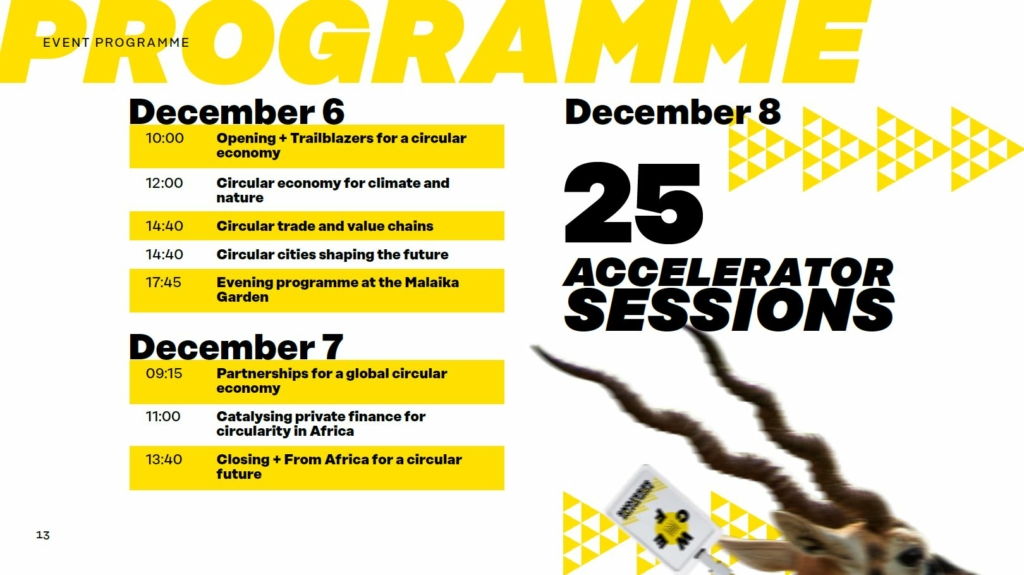
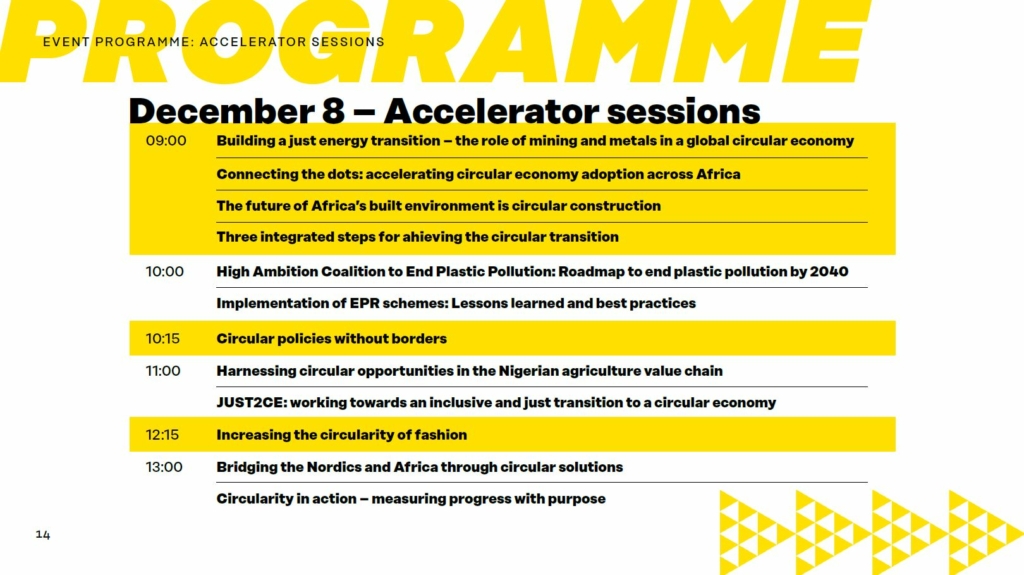
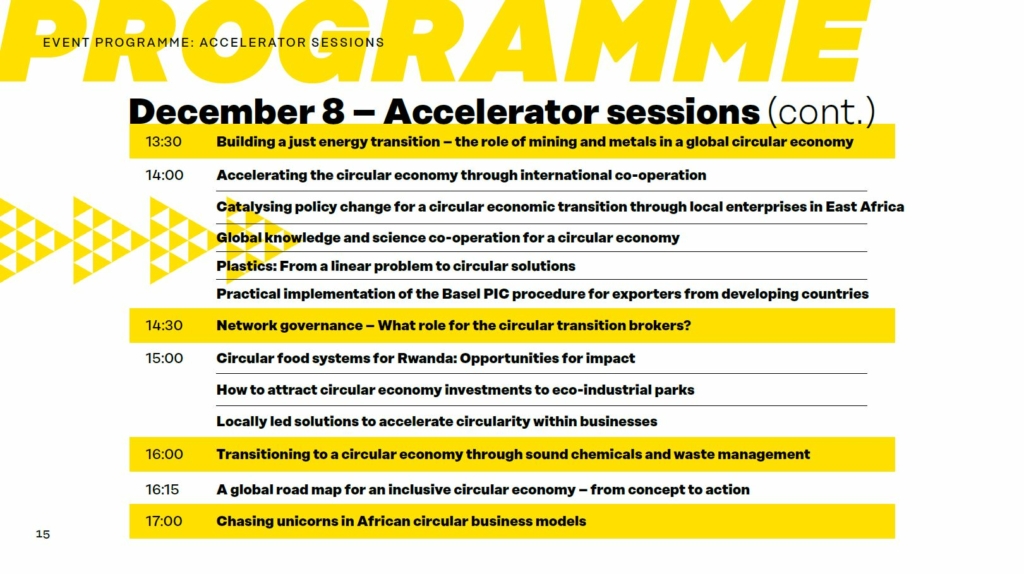
Key figures
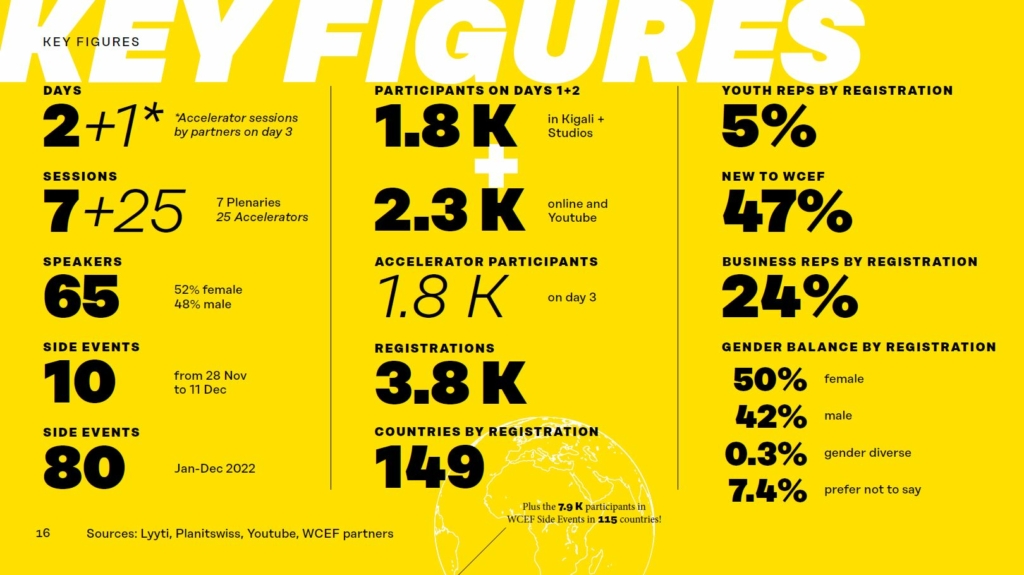
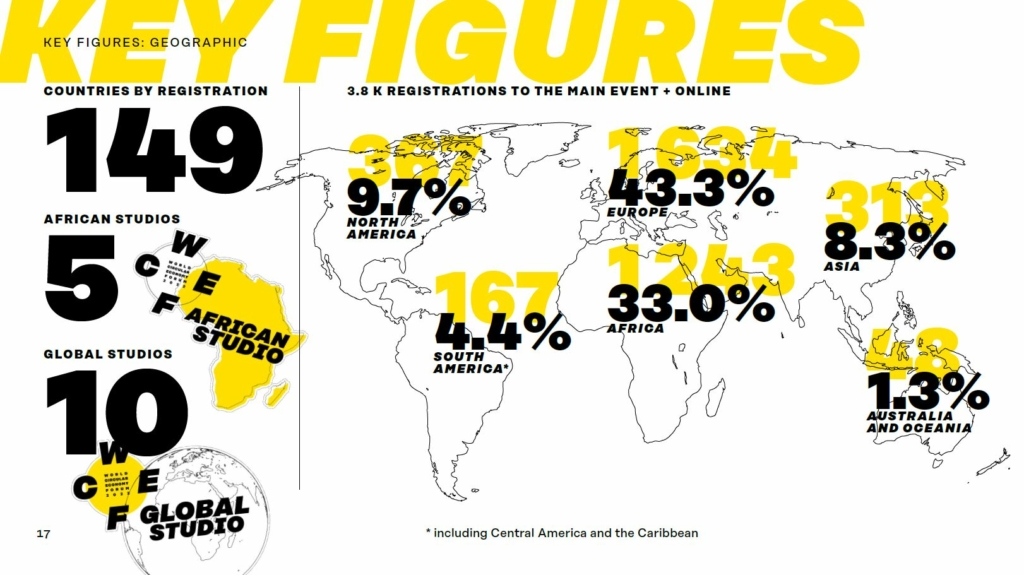
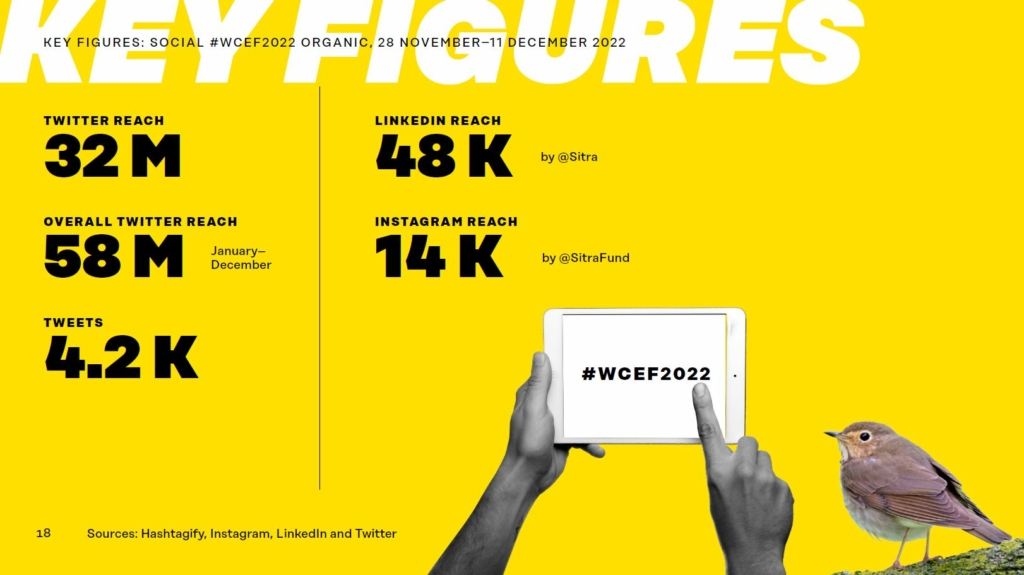
Partners
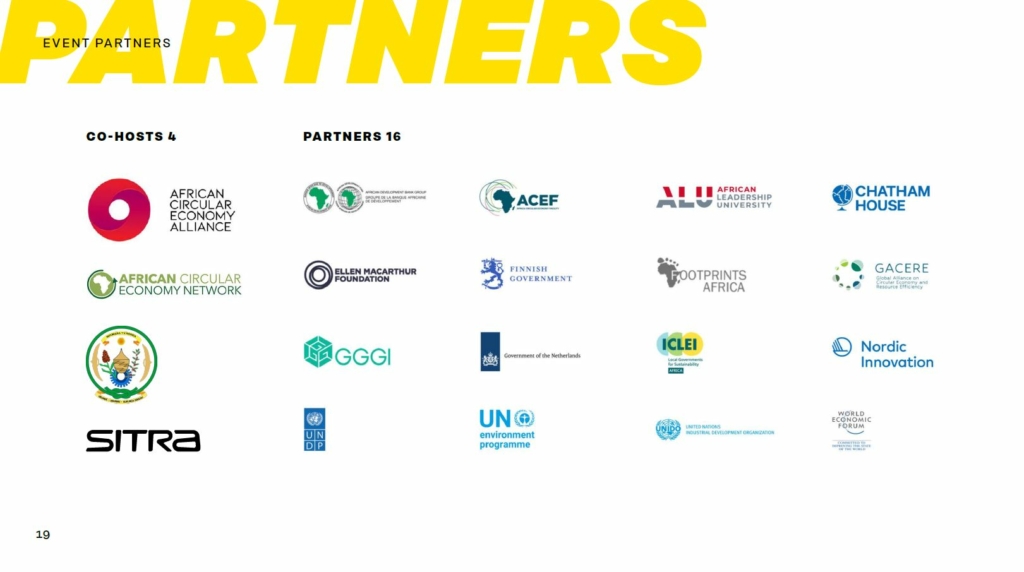
Timeline
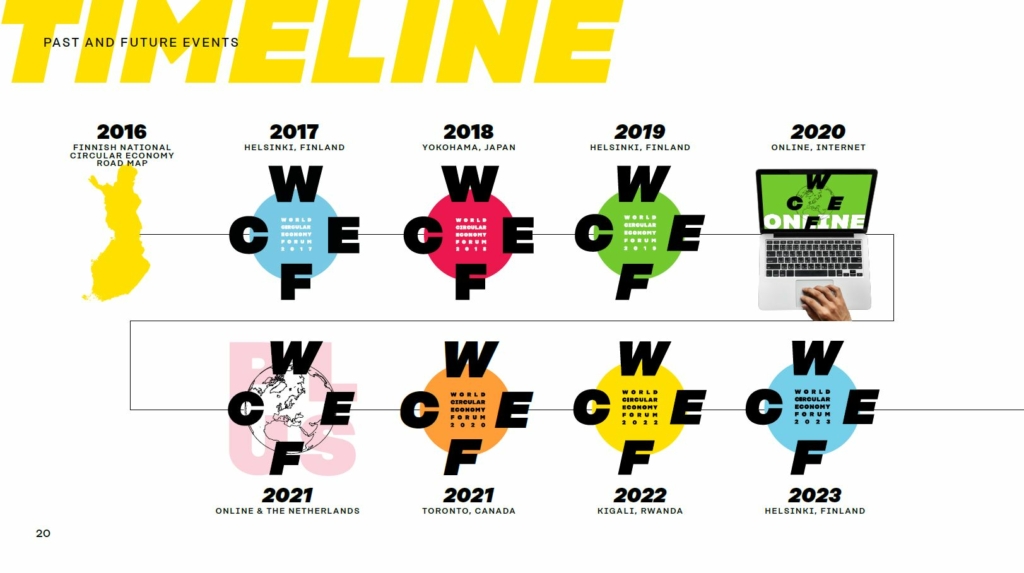
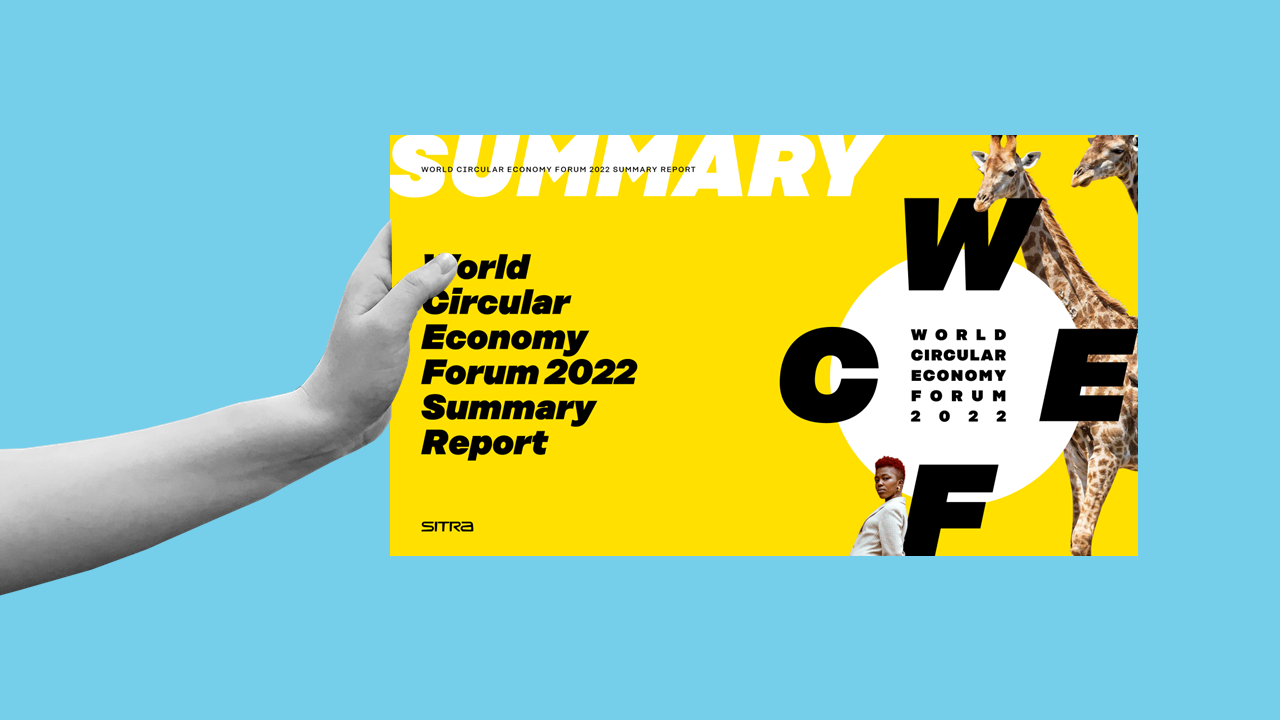
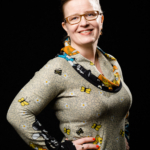













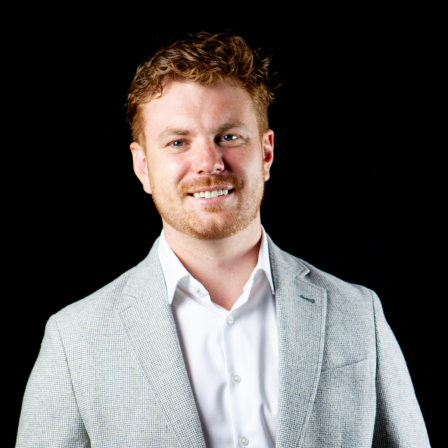

Recommended
Have some more.